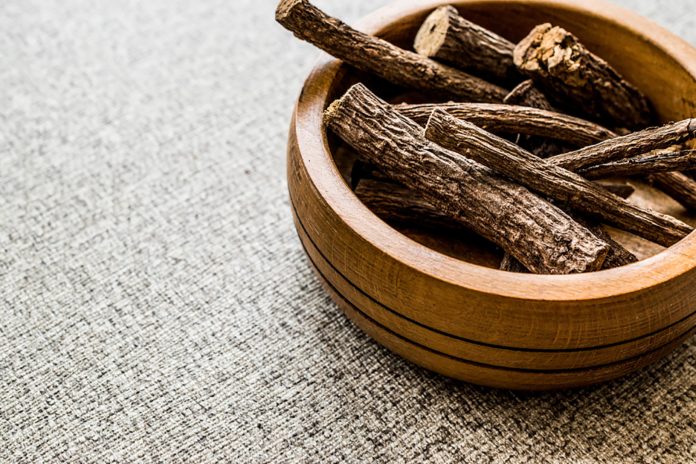Coronavirus cases are increasing each day and so does the vaccine development. However, there is no such date when this vaccine would be available for commercial use. On the other side, researchers are trying to find a cure for coronavirus in nature’s best ingredients. Herbal medicine has always been a popular choice for treatment. Some of these herbs are clinically proven for their medical benefits and one such ingredient is liquorice which is now being studied to treat coronavirus.
A team of researchers from China have investigated the anti-viral effects of liquorice and found that one natural chemical in this plant could possibly treat coronavirus. This compound is called “liquiritin” and it is naturally found in liquorice. It acts upon the viral replication which was observed during the clinical testing using money’s cells.
This is the first-ever study that has investigated the effect of a plant extract on coronavirus, but these research findings are not peer-reviewed until now.
Also read- Hand washing Lowers Risk of All Infections by 50%
Liquorice is a common part of traditional Chinese medicine and is easily available in the market. It is available in tablet form that is used to treat gastrointestinal problems and respiratory diseases in humans. Other than medicine, liquorice root is used as a natural sweetener and added in different food and drinks recipes. Despite its popularity, many researchers are still not convinced of its healing effects on coronavirus.
This research team has taken the help of artificial intelligence (AI) to predict these results after testing them on monkey cells. This use of technology has helped in getting faster results to predict, whether or nor liquorice extract can treat coronavirus.
The researchers from Peking University, Bejing, and the Academy of Military Science collaboratively worked on it and presented liquiritin (from liquorice extract) as a herbal treatment for coronavirus patients.
Ever since the coronavirus pandemic has started, researchers are testing all anti-viral drugs for their efficacy against the virus. However, none of the conventional medicines have shown a positive result against the virus that started from Wuhan city of Hubei Province, last December.
Also read- Entomologist Reject the Claim that Murder Hornets are “Real Murderers”
The researchers also explained the anti-oxidant benefits of the liquorice root which might treat stress, depression, and anxiety. It also reduced internal inflammation, strengths the heart, and potentially prevents heart diseases.
Using the Artificial Intelligence (AI) model, the researchers explained that liquiritin could inhibit the growth of coronavirus in host cells. for this testing, the host cells were taken from the cell line of a monkey. A week later, the same compound was also used on mice cells and the results of both these samples are combined while describing the results of this study.
In addition to the anti-viral effects, there was no toxicity report or any side effect in both of these independent testing experiments. Based on these results, the researchers suggested assessing the anti-viral potential of liquiritin using human cells that are already infected with the deadly coronavirus.
Also read- Read about this Alternative of N95 Respirator Mask That Works Just as Same
China is ending the lockdown and restrictions to move in various parts after it has crossed the “peak phase” of the virus. There are very limited new cases reported and experts believe soon China would be free form the coronavirus.
From school, offices to cinemas, malls, and museums, it is slowly re-opening every public place, confirmed the state council last week. However, he said that the opening of these places would still have “some restrictions” such as limited people allowed to visit at one time. So the public movement would not be as free as it was before the lockdown and standard practices have to be followed by everyone.




